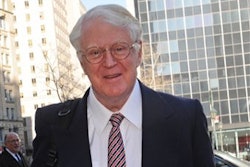PERTH, Australia (AP) -- Woodside Petroleum's chief executive said he is confident that a major gas field off the northwest Australian coast will be exploited despite the energy company on Friday shelving plans for a 45 billion Australian dollar ($47 billion) plant to process the gas for export.
Woodside said in a statement that it scratched plans to build a processing plant at James Price Point in the wild West Kimberley region of Western Australia state because "the proposed concept doesn't provide the economic return required to proceed."
Woodside will now begin talks with its joint venture partners, which include Shell Australia, about alternatives for the Browse gas field.
Options include building a floating liquefied natural gas plant or piping the gas to existing LNG facilities to the southwest.
Woodside CEO Peter Coleman said the decision to dump the plan for James Price Point was the result of rising costs. Australia's mining and natural gas boom has increased wages and pushed up the Australian dollar.
"We do believe that Browse will get developed," he told reporters.
Woodside had been looking at alternatives to a processing plant at James Price Point, but said they were not nearly as far developed as the original plan for the facility there.
"We've already come out and said things like floating technology, for example, is a technology that Woodside supports," Coleman said. "Whether that's appropriate for a Browse development will need to be determined by the joint venture over time."
Coleman said it could be another four or five years before an alternative for the Browse gas field was ready for final approval. The James Price Point plant, which would have been among the world's biggest, had been on the drawing board since 2009.
Shell's Australian boss Ann Pickard reiterated that it believed its floating technology would be the fastest, most economic and best technical solution for processing gas from the Browse field.
"Floating LNG can bring significant long term, sustainable jobs to Western Australia, Australia, and the Kimberley, as well as providing employment and business opportunities for Kimberley indigenous people," Pickard said in a statement.
Woodside received conditional planning approval from the Western Australia state government last week to build an AU$120 million camp to house more than 850 workers at the gas plant.
News that the massive plant would not go ahead was welcomed by environmental groups concerned by potential damage to wilderness and Aboriginal heritage sites.
"Woodside and its joint venture partners have avoided possibly the biggest environmental battle in Australia's history by walking away," Wilderness Society Inc. said in a statement.
"The social cost and the reputational cost to their company of building this development outside Broome was going to far outweigh any long-term economy benefit," Wilderness Society national director Lyndon Schneider told Australian Broadcasting Corp. radio.
Coleman said environmental and administrative compliance requirements for the project had increased and cost increases for Browse had been consistent with other resource extraction projects in Australia.
"Unfortunately the cost escalation has been such that the total cost for Browse would have resulted in the current development concept not being commercial," he said.
Shareholders also applauded Woodside's decision to dump the costly project. Woodside shares rose 2.5 percent to AU$36.18 after the announcement.






















